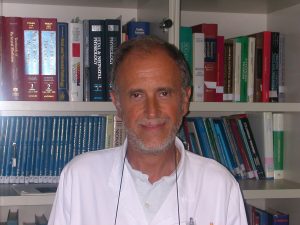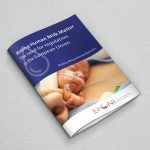An interview with Professor Enrico Bertino, President European Milk Bank Association (EMBA); Representative Union of European Neonatal & Perinatal Societies (UENPS); Neonatal Unit of the University, AOU City of Health and Science of Turin, Italy and member of the expert panel on the policy recommendations on Human Milk Regulation in the EU.

© Prof. Enrico Bertino
EFCNI: Professor Bertino, why was there a need for this project and what was your personal motivation to join the expert panel?
Prof. Enrico Bertino: I am particularly interested in exchanging views between experts in the field of human milk banking and discussing the way forward.
Moreover, I believed that the creation of an expert panel could be the basis for a common consensus for developing a Policy Recommendation, which is what happened. I was and am confident that the publication of this document could be useful to raise awareness on the need for regulation and to promote a process of development of a regulation of human milk donation at European level.
EFCNI: Where are the biggest challenges to be found?
Prof. Enrico Bertino: The main challenges to be faced are the complexity of the legislative process in Europe, which we must follow with great attention.
Another issue is the heterogeneity of legislative regulation as well as the different classification of donor human milk (tissue, food …) between and within European countries.
EFCNI: On a national level, what do you think will be particularly challenging in Italy?
Prof. Enrico Bertino: At present, the main challenge in Italy is the implementation of the existing national guidelines. This process needs policy support from the government and local authorities.
Most importantly, a plan of regionalisation of the 40 HMBs (Human Milk Banks) existing in Italy should be promoted in order to better control the costs and to cover the needs of a higher number of VLBW (Very low birth weight) infants in our country.
EFCNI: Are there ethical questions in regards to human milk donations (e.g. compensation of donors, etc.,) that require particular attention?
Prof. Enrico Bertino: The commercialisation of human milk requires special attention. Financial incentives, for example, could increase the risk of receiving milk from unsuitable donors. Commercialisation could also increase the inequalities, according to economic possibilities, in the availability of donor milk.
Moreover, the donation of human milk within Muslim communities due to inherent religious-cultural issues is an emerging problem, also in Europe.
EFCNI: Can you share some information about the next research projects in the field of human milk donations
Prof. Enrico Bertino: The main ongoing research projects are on new strategies for donor human milk processing and fortification. Other emerging topics are on:
- The impact of the maternal diet (e.g. vegan diet) on donor human milk composition.
- The microbiology of donor human milk.
- Cultural aspects and social ethical issues in human milk donation.
- The Indications for the use of donor human milk.
- From the experience of COVID-19 pandemic, we have learnt that, together with support and promotion of breastfeeding, the strengthening of HMB system is required to ensure that safe provision of donor human milk remains an essential component of early and primary newborns’ care during emergencies scenarios, such as pandemic and natural disasters.
Four specific working groups on these topics have been recently established.
EFCNI: Thank you very much for your time and for sharing this information with us!
 For more information on Human Milk Regulation, please visit: https://www.efcni.org/human-milk-regulation/
For more information on Human Milk Regulation, please visit: https://www.efcni.org/human-milk-regulation/
Download the Policy Recommendations: Making Human Milk Matter – The need for regulation in the European Union

